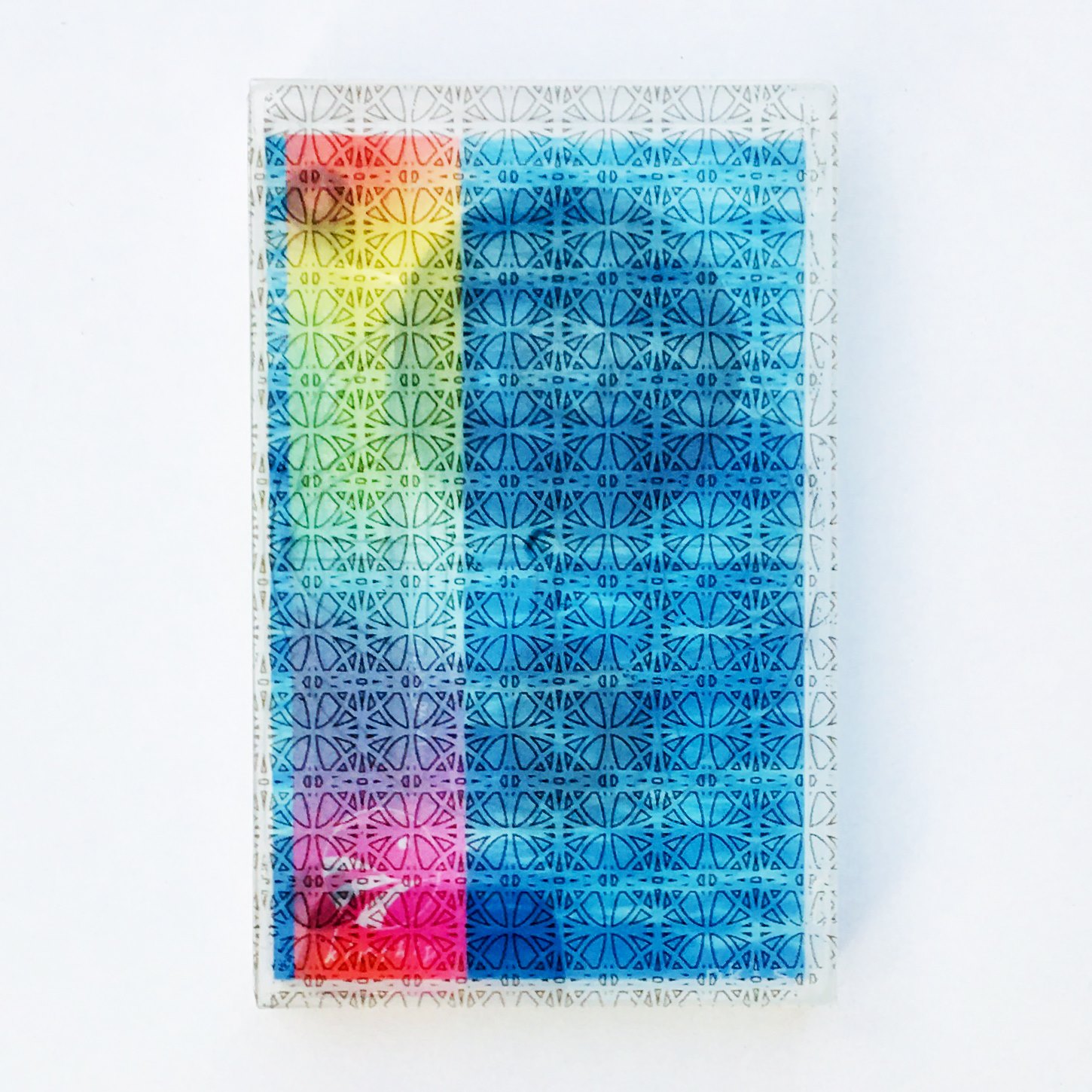interview: kinship
︎Music, Label, Interview, Graphic Design
︎ Ventral Is Golden
interview: kinship
︎Music, Label, Interview, Graphic Design
︎ Ventral Is Golden
︎ Ventral Is Golden
A manifesto of digital aftermath,
exploring the mysterious series
of relation and encounter.
Exploring liminal states in search of the transcendental with Berlin based cassette label, Kinship.
exploring the mysterious series
of relation and encounter.
Exploring liminal states in search of the transcendental with Berlin based cassette label, Kinship.

︎Kinship, 2020.

When and what was the original impulse behind the formation of Kinship as a label?
For me the original impulse was to create Kinship as a way to recall the temporary connections made between people and their instruments, within a kind of temporary, disappearing timeframe. Personally I think the tape expresses limitations that speak to this point of reference that stretches through time. It's maybe what the digital realm of music loses, this aspect of a physical form, a totem that's embedded somehow in the past. Either way it's an emotional resonance. Music in all its forms needs to be heard.
It seems like cassette is your preferred medium. Is it the sound quality or aesthetic that draws you to this format most?
Cassette is my preferred medium for many reasons. Besides its quick production, the sound of the tape has a certain compression and sound quality that fits the music very well, from the selection of sounds to the way the narrative in the music itself follows. Through the quality of how the audio signal is given through the tape, the perception of the quality of the music changes. The tape becomes a part of the music and I love that aspect about a cassette.
The cassette encourages to listen to the whole album instead of individual tracks and often keeps you away from skipping, which naturally enables you to reach a more meditative state whilst listening. This could be seen to benefit our attention span in some ways.
No-one is forced to listen to the cassette though. In every tape release there’s also a download code included so you can get the music digitally. Its just a choice in the end, only a “preferred medium”. To understand further why cassette is the format I’m in love with, the social & philosophical aspects of it etc; you can read Rasmus Fleischer’s article, “How Music Takes Place: Excerpts From “The Post-digital Manifesto” (The Internet Does Not Exist).
For me the original impulse was to create Kinship as a way to recall the temporary connections made between people and their instruments, within a kind of temporary, disappearing timeframe. Personally I think the tape expresses limitations that speak to this point of reference that stretches through time. It's maybe what the digital realm of music loses, this aspect of a physical form, a totem that's embedded somehow in the past. Either way it's an emotional resonance. Music in all its forms needs to be heard.
It seems like cassette is your preferred medium. Is it the sound quality or aesthetic that draws you to this format most?
Cassette is my preferred medium for many reasons. Besides its quick production, the sound of the tape has a certain compression and sound quality that fits the music very well, from the selection of sounds to the way the narrative in the music itself follows. Through the quality of how the audio signal is given through the tape, the perception of the quality of the music changes. The tape becomes a part of the music and I love that aspect about a cassette.
The cassette encourages to listen to the whole album instead of individual tracks and often keeps you away from skipping, which naturally enables you to reach a more meditative state whilst listening. This could be seen to benefit our attention span in some ways.
No-one is forced to listen to the cassette though. In every tape release there’s also a download code included so you can get the music digitally. Its just a choice in the end, only a “preferred medium”. To understand further why cassette is the format I’m in love with, the social & philosophical aspects of it etc; you can read Rasmus Fleischer’s article, “How Music Takes Place: Excerpts From “The Post-digital Manifesto” (The Internet Does Not Exist).
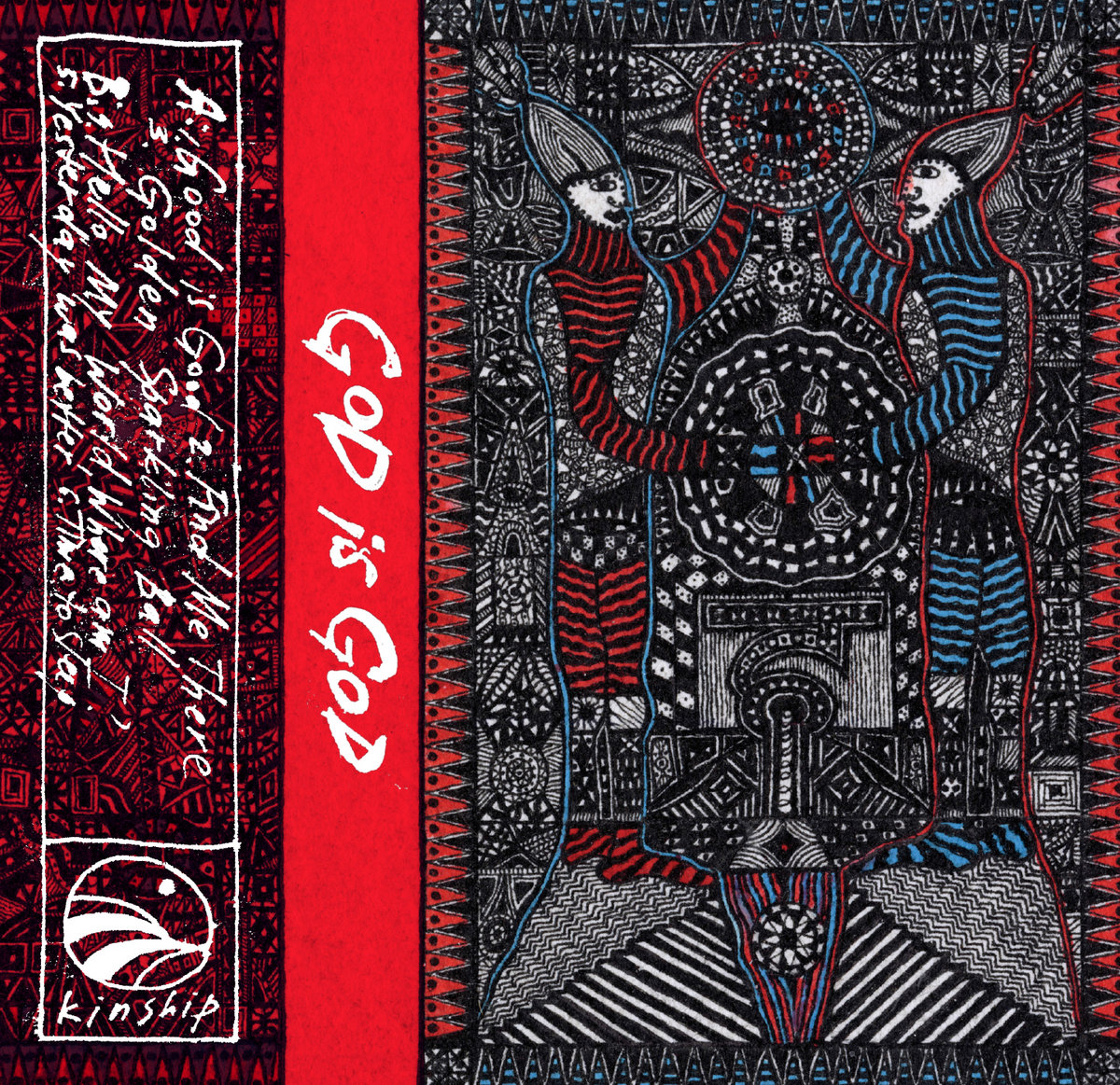
︎God is God, 2018.
“If viewed from a distance, all unique combinations of instrument and sound effects start to resemble something more like meta-instruments. The same thing happens if we consider hardware and software, and the different ways in which they can be configured to produce sounds. The development of the musical means of production finds its expression in innovations made at this meta-instrumental level, and these show themselves for the most part to be the results of collective experimentation without any identifiable single author.“
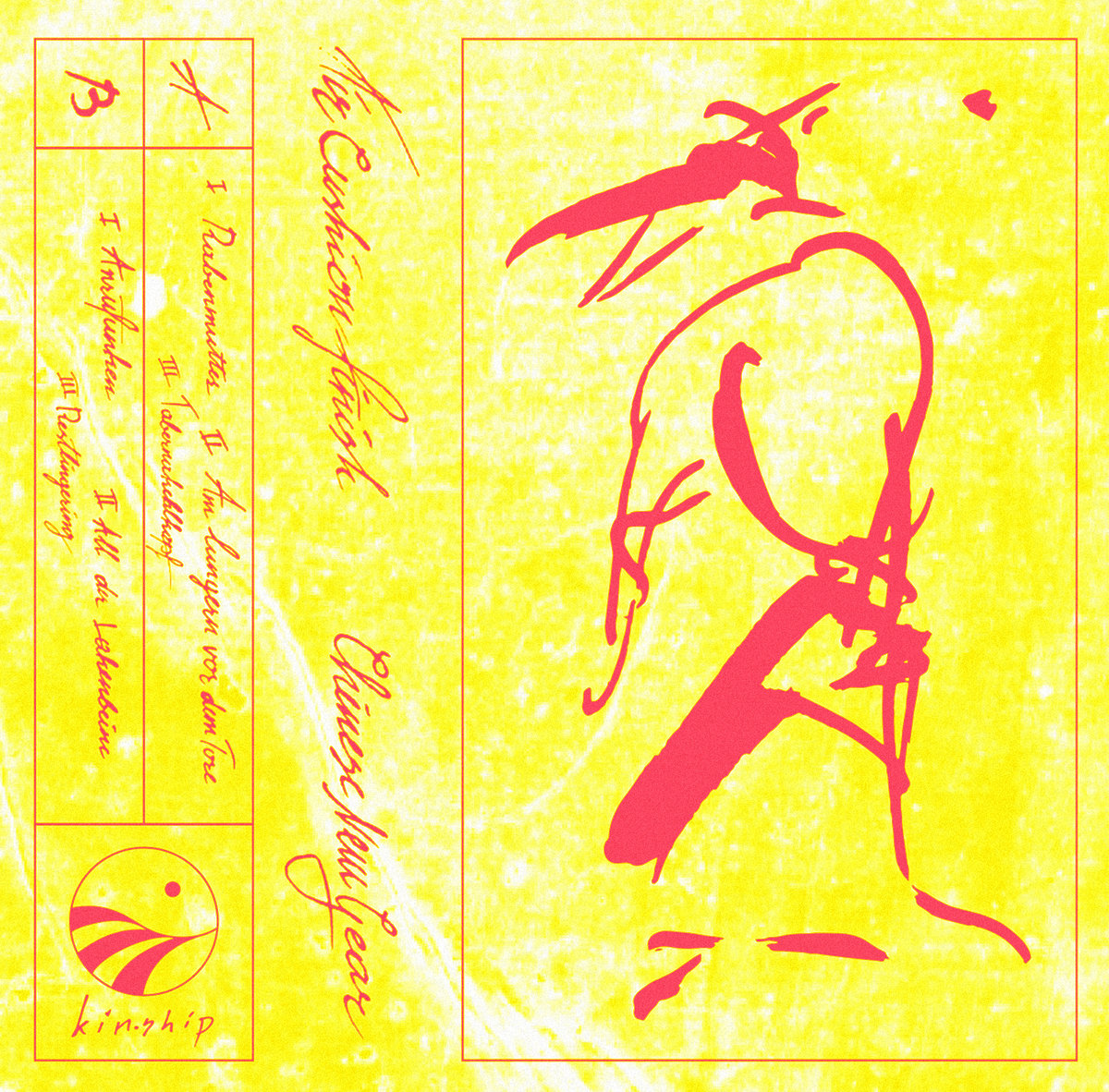
︎Air Cushion Finish, 2018.
What goes into a typical Kinship release in terms of genre. How do you discriminate between tastes and moods in order to know what to release?
It’s really impossible for me to break it down into a certain genre. There is no typical Kinship release and I think every release is as important as the other.
I do gravitate towards music which resonates with a certain period of time though - the journey, a stretch of time. So any one release can be complimentary to the next or previous in the series, as a kind of non-linear narrative. As I try to stay true to this feeling, the more fulfilled the sound appears to me, and hopfully to others.
You’ve worked on cassettes with fellow Berliners, Air Cushion Finish, on their ‘Chinese New Year’ (2018) release. Their sound has been described as anything from ‘homeopathic punk’ to ‘unforeseeable slow motion cacophony’. How has your time in the Berlin’s fertile underground music scene influenced Kinship’s own experimental output.
It was a nice time. :) I used to manage bookings for Acud Macht Neu where I had the chance to meet lots of musicians. Apart from that I just went randomly to nice gigs in occasionally off-centre places and festivals, also playing in these experimental constellations myself. The first time I saw Air Cushion Finish, it resonated with me in a way that my perception towards performance and music in general had changed. The way they expressed, the balance between approachability and the territory of the unknown was something I never experienced before… Since then we became very good friends and make music together whenever we feel it.
It’s really impossible for me to break it down into a certain genre. There is no typical Kinship release and I think every release is as important as the other.
I do gravitate towards music which resonates with a certain period of time though - the journey, a stretch of time. So any one release can be complimentary to the next or previous in the series, as a kind of non-linear narrative. As I try to stay true to this feeling, the more fulfilled the sound appears to me, and hopfully to others.
You’ve worked on cassettes with fellow Berliners, Air Cushion Finish, on their ‘Chinese New Year’ (2018) release. Their sound has been described as anything from ‘homeopathic punk’ to ‘unforeseeable slow motion cacophony’. How has your time in the Berlin’s fertile underground music scene influenced Kinship’s own experimental output.
It was a nice time. :) I used to manage bookings for Acud Macht Neu where I had the chance to meet lots of musicians. Apart from that I just went randomly to nice gigs in occasionally off-centre places and festivals, also playing in these experimental constellations myself. The first time I saw Air Cushion Finish, it resonated with me in a way that my perception towards performance and music in general had changed. The way they expressed, the balance between approachability and the territory of the unknown was something I never experienced before… Since then we became very good friends and make music together whenever we feel it.

You have released ‘Uzun Havalar’ (2019) by Gözen Atila’s psychedelic synth folk project Anadol. This project walks in the footsteps of lone synth experimentalists like Bruce Haack and Space Lady. How did this project materialise?
Gözen (Anadol) gave me the demo of “Uzun Havalar” around 2016 and asked me if I could find a label which could fit to release this album. At that time I was only having ideas of starting a label myself. After I listened to the demo, this album became one of the main reasons I started the label.
Quite quickly, it magically reached an audience who could really appreciate and feel what the music spoke of.

︎Uzun Havalar, 2019.
Probably your biggest collaborative project though the Kinship label was ‘Who Corrupted Our Wave, Back in 1969?’ (2018) by Spiritczulaic Enhancement Center (S.E.C), in which you play bass in an almost exclusively improvised, spectral jazz infused ensemble of international musicians.
How do you find the experience of playing in such a diverse project. Is this a departure from your work through Kinship or some kind of reflective process?
Thats a good way to put it - S.E.C is a group of individuals who have found a certain purpose in doing what needs to be done in terms of improvising sounds in various dimensions. It musically clicked from the moment we first played. The release was our first concert together and the recording was definitely worth the journey. Making music can be a reflective process and one of the intentions behind making Kinship was definitely to create a kind of archive to revisit these experiences.
S.E.C also played a sold out show to finish their first major European tour at Arkaoda alongside Damo Suzuki. Are there any plans to release this in the future?
We enjoyed going to Arkaoda in Istanbul and playing there. It‘s one of the few places which became a meeting spot for the turkish experimental music scene in the asian side of Istanbul. Since then, they opened in Berlin and we’ve been in close contact with them. This show was an incredible experience! It was the last concert of our tour in February 2020 (ten days before the first lockdown). It was very rewarding in many ways. The place was packed and the recording was made. We will hopfully be releasing this on vinyl in the near future through parisian label, Akuphone.
Thats a good way to put it - S.E.C is a group of individuals who have found a certain purpose in doing what needs to be done in terms of improvising sounds in various dimensions. It musically clicked from the moment we first played. The release was our first concert together and the recording was definitely worth the journey. Making music can be a reflective process and one of the intentions behind making Kinship was definitely to create a kind of archive to revisit these experiences.
S.E.C also played a sold out show to finish their first major European tour at Arkaoda alongside Damo Suzuki. Are there any plans to release this in the future?
We enjoyed going to Arkaoda in Istanbul and playing there. It‘s one of the few places which became a meeting spot for the turkish experimental music scene in the asian side of Istanbul. Since then, they opened in Berlin and we’ve been in close contact with them. This show was an incredible experience! It was the last concert of our tour in February 2020 (ten days before the first lockdown). It was very rewarding in many ways. The place was packed and the recording was made. We will hopfully be releasing this on vinyl in the near future through parisian label, Akuphone.
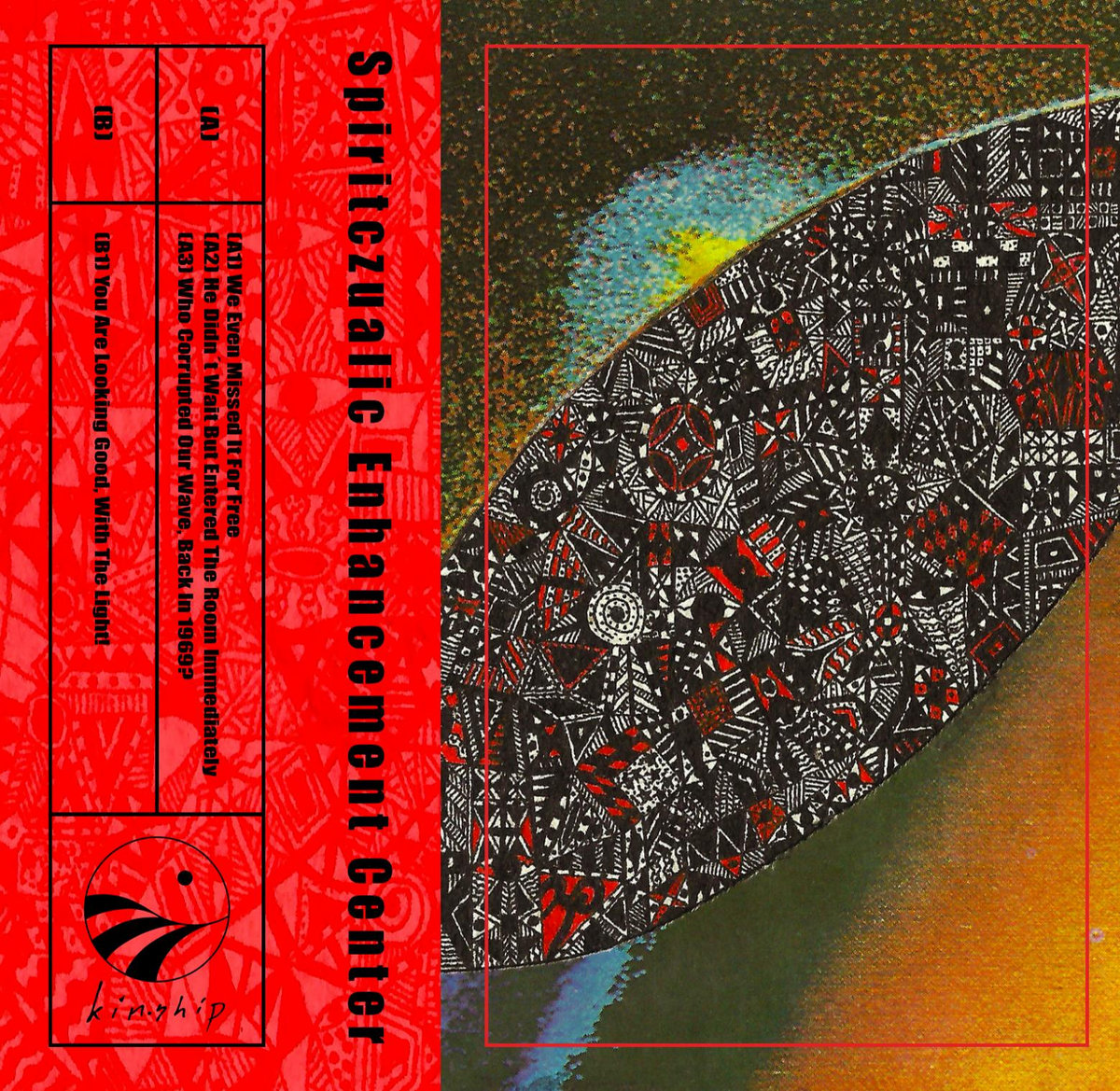
︎Who Corrupted Our Wave?, 2018.
“In the post-digital, almost any barrier to the boundless flood of music can be turned into a resource for the production of presence...“
- Rasmus Fleischer.
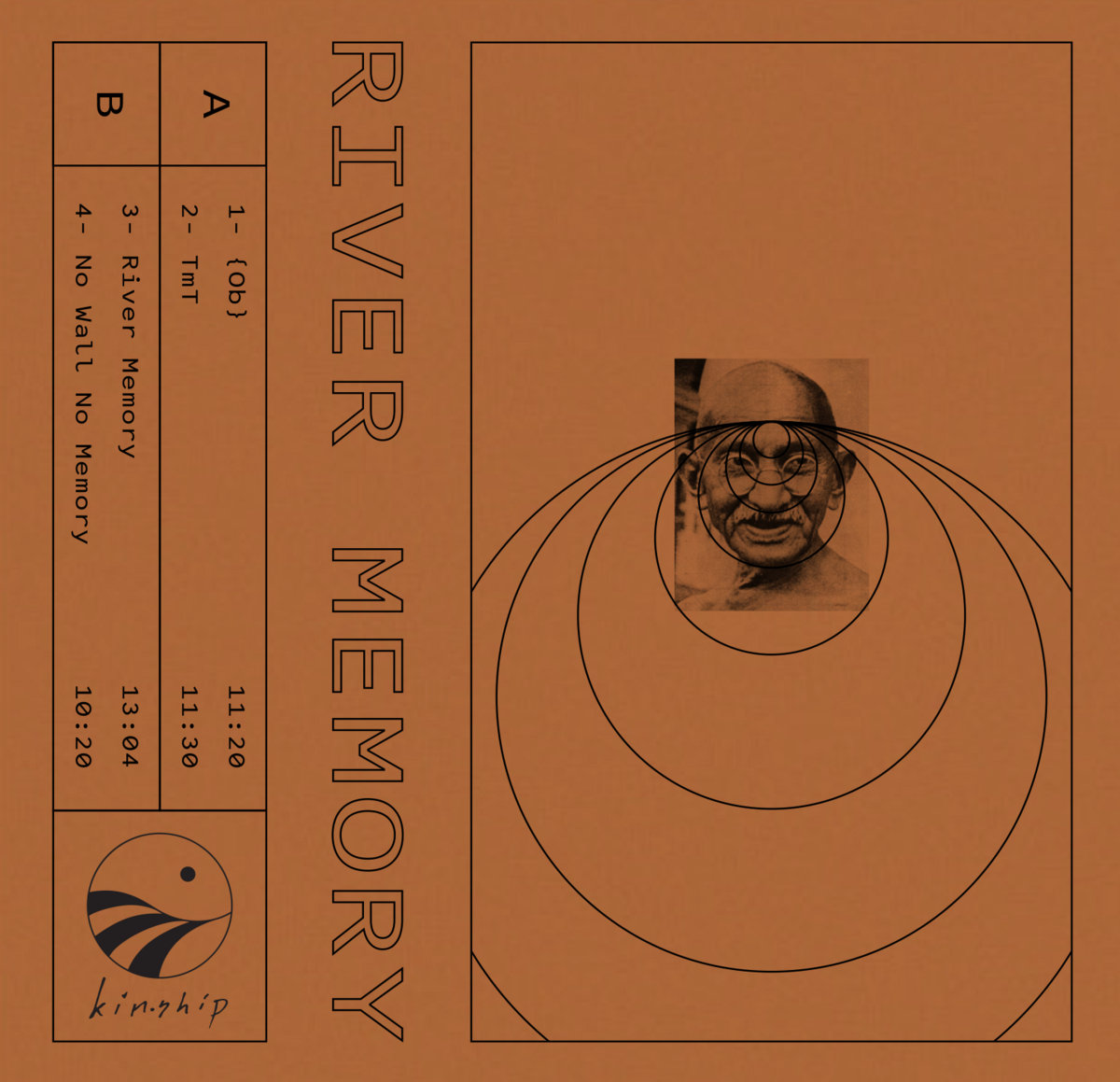
︎River Memory, 2018.

Further Reading ︎
Bandcamp.
Soundcloud.
Facebook.
Kinship - Instagram.
Et Kin, Founder - Instagram.
‘How Music Takes Place’: Excerpts From “The Post-digital Manifesto
by Rasmus Fleischer.
Bandcamp.
Soundcloud.
Facebook.
Kinship - Instagram.
Et Kin, Founder - Instagram.
‘How Music Takes Place’: Excerpts From “The Post-digital Manifesto
by Rasmus Fleischer.
